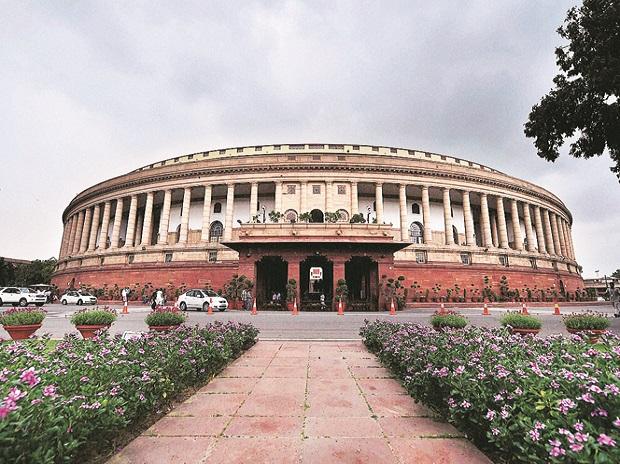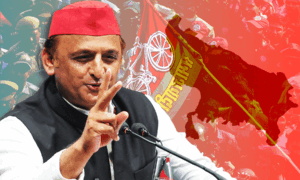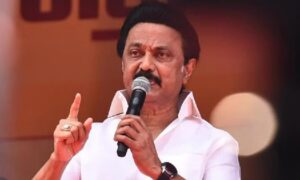
Image : Representational Purpose Only
Democracy and secularism. Democracy in its essence means a form of government founded on the principle that the Tax payers decide through their elected representatives constituting the Parliament how the Tax proceeds forming public money should be spent by different wings of the state. This principle was first embedded in the Magna Carta that King John of England signed in 1215 from which evolved through centuries the representative form of government in different countries which we call democracy. Since every action of the state- internal and external involves expenditure from out of the ‘ public money” including public debt, that is, loans raised by the government and put in to form the consolidated fund of the state as it is legally defined , the authority which controls the purse is the real government . Since Parliament assumed the power of making laws to spend public money which was only enjoyed by the monarch it became the supreme authority heralding the birth of democracy.
Initially franchise in the democracies wasn’t universal and restricted to only those who paid taxes ; and it was only after World war1 that the women were granted the right to vote in some countries like Great Britain. The rise of socialism in Europe after the Second world war and in the newly independent countries led to the acceptance of the radical principle that since every citizen pays indirect taxes and some direct taxes, every one is a tax payer which resulted in the acceptance of the universal adult franchise as the basis of preparation of the electorate of a democracy. The concept of equality here implies that every tax payer is equal regardless the amount of tax one pays to the state. India is among the first newly independent nation states to provide for the universal adult franchise even when the constituent assembly which gave us the Constitution in 1950 was formed on the basis of a restricted franchise under the government of India Act 1935. The Idea of secularism is implicit- first in the idea that all Tax payers are equal and second the provisions like Art 14 – right to equality and Art 21- right to life which together constitute the Rule of law provide the legal basis of secularism as discrimination on grounds of faith will be incompatible with these provisions which together constitute the ” basic structure” of the Constitution as defined in the Keshavananda Bharati case by the Supreme court.
India is secular in the sense that there is no state religion and that the state can not discriminate between followers of different faiths as per article 14 of the Constitution. This is in tune with the Cambridge Dictionary meaning of the word secularism as ” the belief that religion should not be involved with the ordinary social and political activities of the country.”
The word secular was included in the Preamble of the Constitution of India by amendment which made it a part of the foundational values and objects of the Constitution.
2. Socialism . The word socialist was included in the Preamble of the Constitution by amendment to make socialism like secularism a foundational value and an object of the democratic polity that the people of india decided to give to themselves. The Oxford dictionary meaning of the word socialism is “a political and economic theory of social organisation which advocates that the means of production, distribution, and exchange should be owned and regulated by the community as a whole”. However governments and political parties across the world claiming to be “socialist” have defined it in as many ways that suited them which led some to conclude that ” socialism is like an old hat that has lost its shape because everyone wears it”. Nevertheless socialism is based on the idea that state intervention in the economy is imperative to bring about justice- social and economic as prevelance of gross inequality of income and opportunities over a period of time might as well distort and destabilize the state and turn it into a” banana republic” serving the interest of the few at the cost of the larger society as seen in several Latin American countries.
In the continuing economic crisis in the wake of outbreak of Covid 19 the need for establishing a’ welfare state” as provider of basic public goods- health facilities, education, clean and green environment, skill development, social security is underscored even in advanced countries; and certainly holds good for India as huge gaps in all these critical areas are being seen ; and all these suggest a need to revisit the 2017 National Health policy and a review of the market led economic development strategy that we have adopted since 1991 economic reforms as the object of a welfare state is embedded in the Preamble of the Constitution itself.
3. Democracy as a form of government is so widely varying both in form and content including the election process that a global democracy index is now prepared annually by the London based Economist newspaper according to some basic criteria such as degree of transparency and fairness of the elections held, actual exercise of freedom of speech, free press, right to protest and such other rights by the citizens etc. On examination of data and evidence the States are put in categories such as full democracy, flawed democracies and authoritarian systems according to scores earned in each head for assessing how democracy functions in different countries. It’s interesting to note that both India and the USA are put in the” flawed” category while Pakistan and China are in the authoritarian group well below other democracies. It’s essential to go through this index to avoid the most common mistake of equating democracy with only periodic elections, though infact proper functioning of non elected institutions like the free press, independent judiciary neutral civil service and executive magistracy, Human rights commission, independent anti corruption watch dog bodies, and local self governing institutions like the Panchayats and Nagarpalika determine the quality of democratic governance.
4. Is democracy then continuously evolving ? The answer to this question is yes because objective conditions widely vary from country to country. Nevertheless there are a few basic activities and approaches which distinguish between an advancing and faltering democracies as the latter might as well lapse into a system sharing features of an authoritarian system as in Pakistan. First, a democracy as Amartya Sen points out is a ‘ government by discussion ” which implies that individual values can and do change the decision as well as the process of decision making. As this accords legitimacy to democratic governance the freedom of speech and expanding the platforms of expression of views are foundations of democracy. This takes us to the second imperative that Sen views as a kind of touch stone to evaluate a democracy- degree of success in ” human capability advancement” which suggests building a ” Welfare state” to empower the citizens in a comprehensive way.
[the_ad id=”41101″]


















